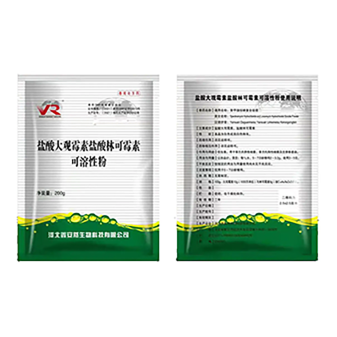- Afrikaans
- Albanian
- Amharic
- Arabic
- Armenian
- Azerbaijani
- Basque
- Belarusian
- Bengali
- Bosnian
- Bulgarian
- Catalan
- Cebuano
- Corsican
- Croatian
- Czech
- Danish
- Dutch
- English
- Esperanto
- Estonian
- Finnish
- French
- Frisian
- Galician
- Georgian
- German
- Greek
- Gujarati
- Haitian Creole
- hausa
- hawaiian
- Hebrew
- Hindi
- Miao
- Hungarian
- Icelandic
- igbo
- Indonesian
- irish
- Italian
- Japanese
- Javanese
- Kannada
- kazakh
- Khmer
- Rwandese
- Korean
- Kurdish
- Kyrgyz
- Lao
- Latin
- Latvian
- Lithuanian
- Luxembourgish
- Macedonian
- Malgashi
- Malay
- Malayalam
- Maltese
- Maori
- Marathi
- Mongolian
- Myanmar
- Nepali
- Norwegian
- Norwegian
- Occitan
- Pashto
- Persian
- Polish
- Portuguese
- Punjabi
- Romanian
- Russian
- Samoan
- Scottish Gaelic
- Serbian
- Sesotho
- Shona
- Sindhi
- Sinhala
- Slovak
- Slovenian
- Somali
- Spanish
- Sundanese
- Swahili
- Swedish
- Tagalog
- Tajik
- Tamil
- Tatar
- Telugu
- Thai
- Turkish
- Turkmen
- Ukrainian
- Urdu
- Uighur
- Uzbek
- Vietnamese
- Welsh
- Bantu
- Yiddish
- Yoruba
- Zulu
دېكابىر . 05, 2024 18:13 Back to list
Determining the Proper Injectable Ivermectin Dosage for Goats in Veterinary Care
How Much Injectable Ivermectin for Goats?
Ivermectin is a widely used antiparasitic agent that plays a crucial role in the management of parasitic infections in goats. As livestock producers know, goats are susceptible to a variety of internal and external parasites, including gastrointestinal worms and ectoparasites like mites and ticks. Therefore, effective deworming strategies are essential for maintaining the health and productivity of these animals. Injectable ivermectin is a powerful tool in this regard, but knowing the correct dosage is vital for ensuring safety and efficacy.
What is Ivermectin?
Ivermectin is a member of the avermectin family of drugs and is classified as a macrocyclic lactone. It works by interfering with the nervous system and metabolism of parasites, ultimately leading to their death. This makes ivermectin effective against a range of parasites, including roundworms, lungworms, and certain ectoparasites. In goats, it is available in several forms, including oral, topical, and injectable formulations, with the injectable form being particularly favored for quick absorption and action.
Determining the Correct Dosage
The recommended dosage of injectable ivermectin for goats is typically 1% (10 mg/ml) in the injectable formulation, and the usual dosage is 0.2 mg/kg of body weight. This means that for every kilogram of body weight, a goat should receive 0.2 milligrams of the drug. Accurate dosing is crucial; too little may be ineffective, while too much can lead to toxicity or adverse effects.
For example, if you have a goat weighing 50 kg (approximately 110 lbs), the calculation for the proper dose would be as follows
- Weight of the Goat 50 kg - Dosage per kg 0.2 mg - Total Dosage 50 kg x 0.2 mg/kg = 10 mg
So, a 50 kg goat would require a dose of 10 mg of injectable ivermectin
.how much injectable ivermectin for goats

Administration of Injectable Ivermectin
When administering injectable ivermectin, it should be given subcutaneously (under the skin) or intramuscularly (into the muscle). The neck is often the preferred site for subcutaneous injections due to ease of access and reduced risk of complications. It is essential to use a sterile syringe and needle, and after the injection, it is recommended to massage the site to aid in absorption.
Important Considerations
1. Consult a Veterinarian Before starting any deworming regimen, it is always best to consult with a veterinarian. They can provide guidance on the appropriate treatment plan based on the specific conditions of your herd and conduct fecal analyses to identify parasite loads.
2. Withdrawal Times Ivermectin and other antiparasitic treatments come with withdrawal times before the animal can be slaughtered for meat or before their milk can be sold. For ivermectin, the withdrawal time for meat is typically 18 days, and for milk, it is about 60 hours. It is crucial to adhere to these times to ensure food safety.
3. Resistance Considerations Overuse of ivermectin can lead to the development of resistance among parasite populations. To mitigate this risk, it is advisable to implement a rotation of different classes of dewormers and maintain proper pasture management practices.
4. Monitor Goat Health After administration, it is vital to monitor goats for any signs of adverse reactions, such as lethargy, loss of appetite, or signs of an allergic reaction. Reports of severe reactions are rare but can occur and should be addressed promptly.
Conclusion
Injectable ivermectin is a highly effective solution for managing parasite infestations in goats when used correctly. Understanding the proper dosage, administration techniques, and considerations surrounding its use can help ensure that your goats remain healthy, productive, and free from harmful parasites. Always prioritize veterinary guidance and responsible treatment practices to maintain herd health and sustainability in goat farming.
-
Guide to Oxytetracycline Injection
NewsMar.27,2025
-
Guide to Colistin Sulphate
NewsMar.27,2025
-
Gentamicin Sulfate: Uses, Price, And Key Information
NewsMar.27,2025
-
Enrofloxacin Injection: Uses, Price, And Supplier Information
NewsMar.27,2025
-
Dexamethasone Sodium Phosphate Injection: Uses, Price, And Key Information
NewsMar.27,2025
-
Albendazole Tablet: Uses, Dosage, Cost, And Key Information
NewsMar.27,2025













